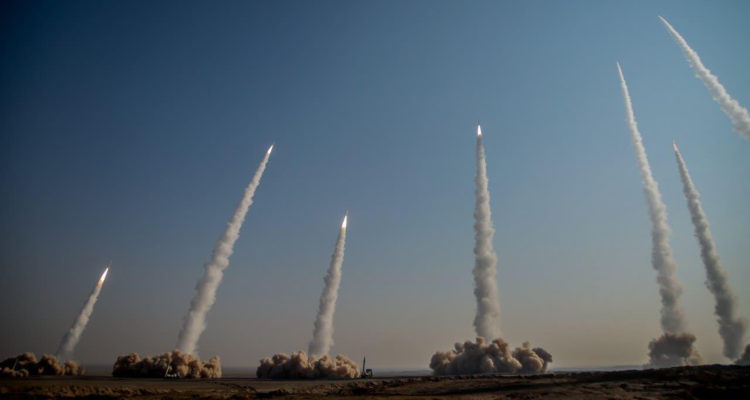With the international community at a loss on how to curb Tehran’s nuclear ambitions, Israel is preparing to stand alone.
By Donna Rachel Edmunds, World Israel News
Israel’s ability to defend itself from an Iranian nuclear threat has been given a $1.5 billion boost by the government, who have included the figure in their budget.
The funds will be split across two years, with $1 billion being made available in this financial year, and a further $500 million next year, Channel 12 News reported Monday.
New aircraft, intelligence gathering capabilities which potentially includes satellites, and dedicated armaments to counter the nuclear threat are all on the shopping list.
Concerns are growing in Jerusalem that Israel may have to take unilateral action against Iran, following a breakdown in talks between the Islamic state and the international community aimed at curbing its nuclear ambitions.
The Biden administration wants to see Iran return to the Joint Comprehensive Plan of Action, otherwise known as the Iran nuclear deal, reversing his predecessor’s policy of pulling out and imposing harsh sanctions against Tehran when it became obvious the Iran was pursuing nuclear capabilities despite the agreement.
Vienna-based talks aimed at rebuilding the JCPOA were put on hold over the summer to allow for elections in Iran, but Iran’s new hard-line President Ebrahim Raisi has shown himself to be in no rush in bringing his country back to the negotiation table.
When European countries tried to lean on Iran over the summer to return to talks, Tehran responded by insisting that it would not be rushed, and the Biden administration seems at a loss on how to curb Tehran on the matter.
Consequently, and with Iran ramping up uranium enrichment to 60% plus, the Israel Defense Forces have taken steps to prepare to counter any nuclear threat from Iran as a first line of defense, rather than rely on the international community.
In April, Israel carried out a successful attack against the Natanz facility, disabling main and backup electrical systems. However, the attack is believed to have only delayed the nuclear program by a few months at most.
In July, the IDF told Israel’s Prime Minister Naftali Bennett that its latest assessment found the IDF is still not at full readiness for a major conflict with Iran. Both the IDF and the Mossad stressed that Israel should develop multiple operational plans.
The goal of such operations would not be to destroy Iran’s nuclear program in a single blow, but to sabotage, disrupt, and delay the program indefinitely through surgical strikes and intelligence operations, such as the operation at Natanz.
The purpose of the operations is not solely military, but also to “humiliate the Iranians” and harm their morale, giving them the feeling that they are under siege by Israeli operations they are powerless to stop.
IDF sources said that further operations are already in the planning stages, saying, “There are big plans and small plans.”
_____
Benjamin Kerstein contributed to this report.





